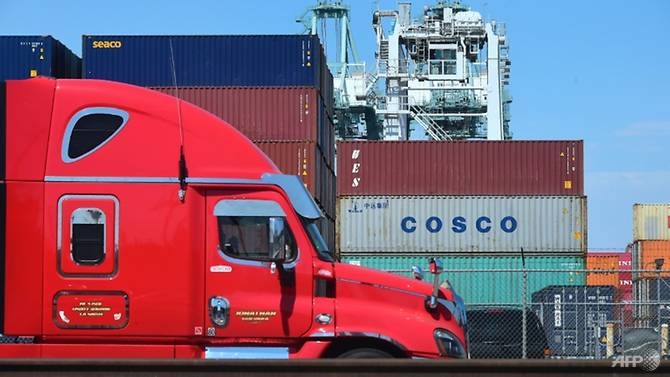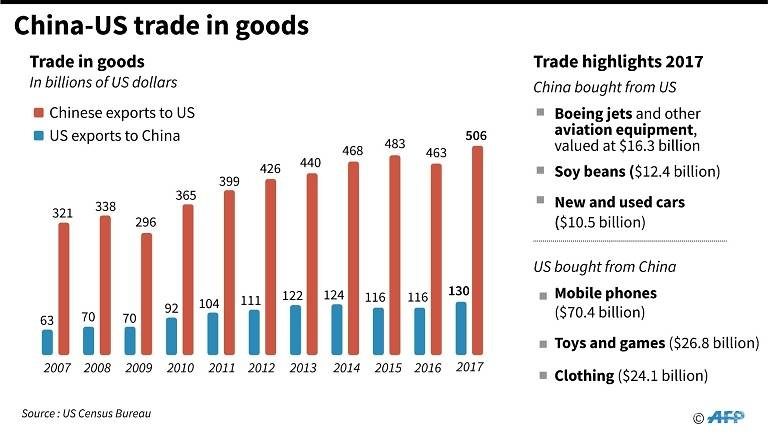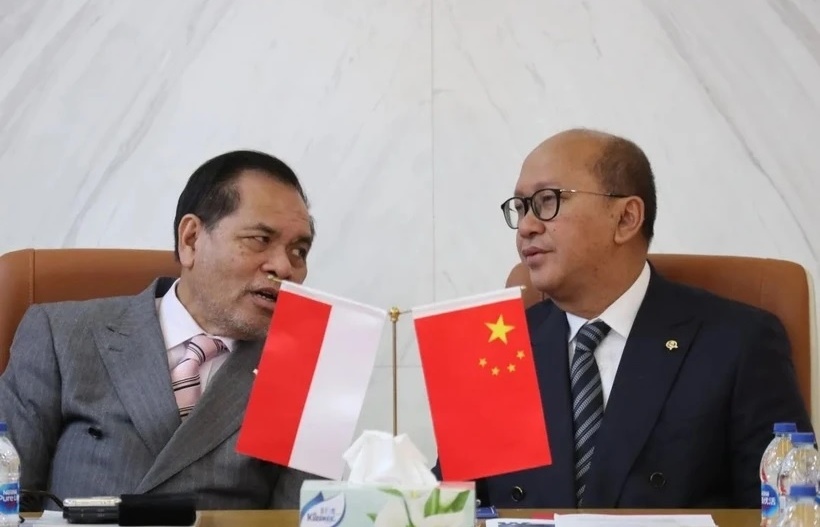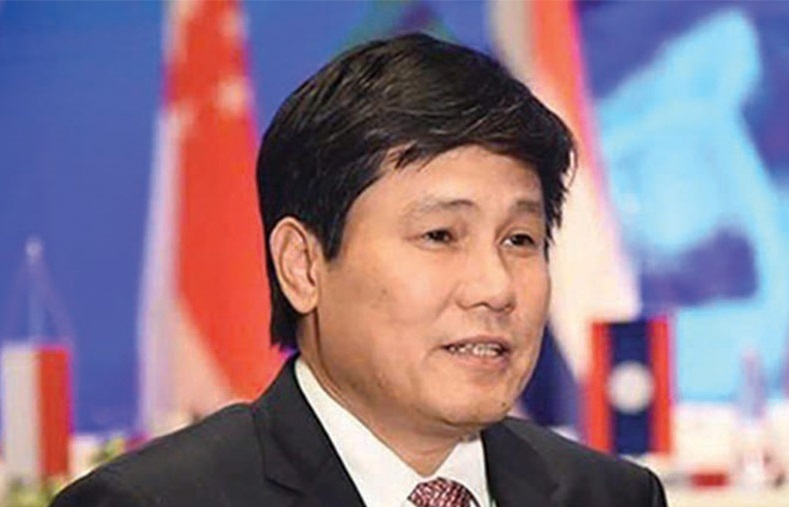Trade war heats up as China takes aim at US$60b in US goods
 |
| Washington and Beijing are locked in battle over American accusations that China's export economy benefits from unfair policies and subsidies AFP/Frederic J. BROWN |
The commerce ministry issued a statement saying the new duties would be applied if Washington pulled the trigger on President Donald Trump's threat to raise tariffs on US$200 billion worth of Chinese goods.
 |
| The US trade deficit swelled in June by the largest amount in 19 months, reversing much of May's trade-war driven export bonanza. (AFP/Gal ROMA) |
The Chinese reaction is sure to ratchet up tensions with the Trump administration at the end of a week that saw stock markets rattled by the intensifying trade battle.
"China always believes that consultation on the basis of mutual respect, equality and mutual benefit is an effective way to resolve trade differences," the commerce ministry said.
"Any unilateral threat or blackmail will only lead to intensification of conflicts and damage to the interests of all parties."
The statement said the date of implementation of the taxes will depend on the "actions of the US side" and China reserves the right to apply "other countermeasures".
The tariffs would range between five per cent and 25 per cent and would hit 5,027 products, according to the finance ministry. The list of products includes a variety of agricultural goods such as beef, as well as small planes, chemical components, textiles and liquefied natural gas.
The threat came a day after Chinese officials appealed for dialogue based on "mutual respect", with Foreign Minister Wang Yi urging the United States on Thursday to remain "cool-headed".
The commerce ministry threat came after Wang met with US Secretary of State Mike Pompeo at a meeting of the Association of Southeast Asian Nations (ASEAN) in Singapore on Friday.
Washington and Beijing are locked in a battle over American accusations that China's export economy benefits from unfair policies and subsidies, as well as theft of American technological know-how.
Trump has threatened to slap tariffs on virtually all of China's exports to the United States in the tit-for-tat trade conflict.
DEFEND CHINA'S 'DIGNITY'
The US already imposed 25 per cent tariffs on US$34 billion of Chinese goods in early July, with another US$16 billion to be targeted in coming weeks, drawing an in-kind retaliation from China.
Days later, Washington unveiled a list of another US$200 billion in Chinese goods, from areas as varied as electrical machinery, leather goods and seafood, that would be hit with 10 per cent import duties.
But Trump raised the stakes this week by asking the US Trade Representative to consider increasing the proposed tariffs on the US$200 billion worth of goods to 25 per cent.
The latest Chinese response shows the limits of Beijing's ability to hit back at Washington dollar for dollar, given that China's exports to the United States far exceed its US imports.
But analysts say that China can also absorb the hits by expanding stimulus programmes, fiscal spending and bank lending.
The yuan has also declined recently, threatening to take some of the bite out of tariffs by making imports cheaper, though the central bank took measures on Friday to stop it from further falling.
"The US and China have backup plans in areas like technology and agriculture, where they can look towards importing from third-party nations," Ye Tan, an independent Chinese economic analyst, told AFP.
"The Chinese are also coping by lowering the rate of the yuan, while the US can look towards countries in Southeast Asia as replacements for its imports, so it's not a big issue," Ye said.
The Chinese commerce ministry blamed the United States for escalating the situation.
"China has to take necessary countermeasures to defend the country's dignity and the interests of the people, defend free trade and the multilateral system, and defend the common interests of all countries in the world," the statement said.
What the stars mean:
★ Poor ★ ★ Promising ★★★ Good ★★★★ Very good ★★★★★ Exceptional
 Tag:
Tag:
Related Contents
Latest News
More News
- More than $2 billion boost to growth as UK joins CPTPP (December 16, 2024 | 17:25)
- Malaysia launches national AI office for policy, regulation (December 13, 2024 | 10:13)
- ADB approves 500 million USD loan for Philippines’s public financial management reform (December 13, 2024 | 10:00)
- Five tech predictions for 2025 and beyond (December 11, 2024 | 15:52)
- Singapore cracks down on illegal lending operations (November 26, 2024 | 09:25)
- Cambodian King to pay state visit to Vietnam (November 26, 2024 | 09:13)
- Trump claims 'magnificent' victory over Harris (November 06, 2024 | 16:55)
- Trump at 266 electoral votes, Harris at 195: US media (November 06, 2024 | 14:30)
- Trump on verge of victory over Harris (November 06, 2024 | 14:26)
- Tech companies invest in data centres in Thailand (November 04, 2024 | 16:23)






















 Mobile Version
Mobile Version